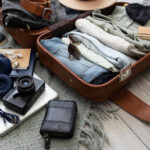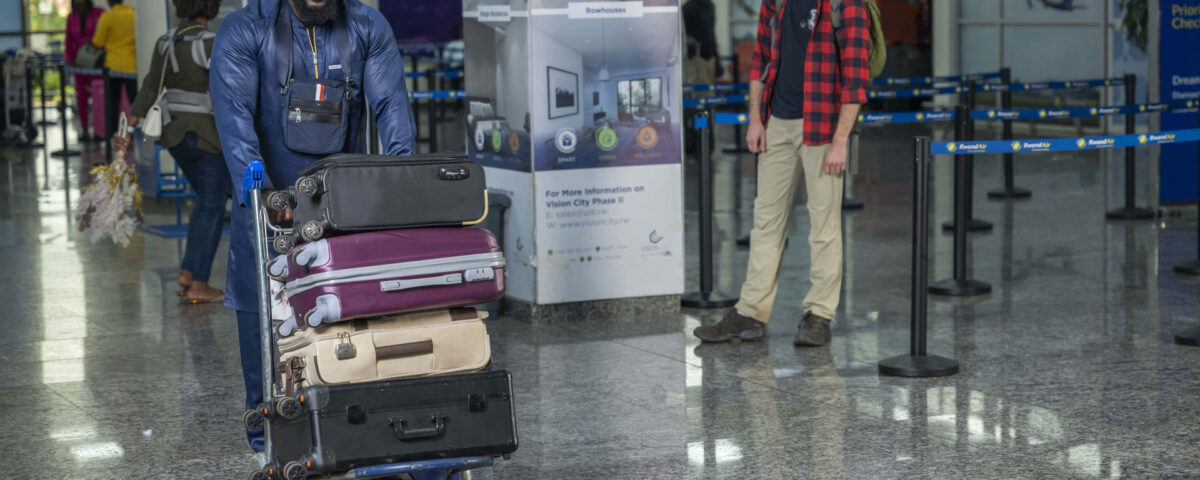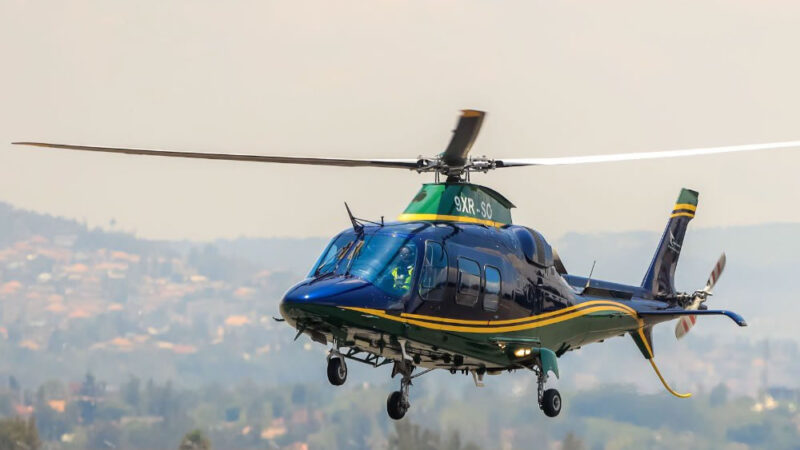
Things Not Allowed at Entebbe & Kigali Airports: A Safari Traveler’s Guide
September 16, 2025
Common Mistakes Travelers Make at Entebbe and Kigali Airports and How to Avoid Them
September 16, 2025Preparing for a safari in East Africa is as much about what not to pack as it is about what to bring. Many first-time visitors to Uganda and Rwanda overpack, unaware of airport restrictions, cultural sensitivities, and safari specific challenges. Both Entebbe International Airport and Kigali International Airport have strict rules about certain items, and the realities of safari travel mean some belongings only become a burden.
This guide by Traford Safaris highlights the top 9 items you should leave at home before flying to Uganda or Rwanda, so you can travel lighter, pass through airport checks smoothly, and enjoy a worry-free safari experience.
1. Single Use Plastics – Avoid Confiscation and Fines
Rwanda enforces one of the strictest plastic bans in the world, and Uganda also restricts many types of plastics. Travelers arriving with single use plastic bags, wrappings, or packaging risk confiscation at customs and in Rwanda, even fines. Instead of disposable bags, bring reusable cloth or biodegradable alternatives. Many safari lodges also provide eco-friendly storage options, so you won’t need plastics on your trip.
Travel Tip: Store liquids in reusable silicone bottles and pack dirty laundry in washable cloth bags.
2. Heavy Winter Clothing – Thick Layers, Not Bulk
While Uganda and Rwanda have highland regions that get cool, especially at night, heavy coats and bulky boots are unnecessary. Temperatures rarely drop below 10°C (50°F). Instead of winter wear, opt for layered outfits: a light fleece, a windbreaker, and a safari jacket. Layers give you flexibility during chilly mornings and warm afternoons without filling your suitcase.
Travel Tip: A compact rain jacket is more valuable than a wool coat, especially for gorilla trekking in Bwindi or Volcanoes.

3. Camouflage Clothing – Reserved for Military Use
Both countries restrict civilian use of camouflage. Wearing army-style clothing could cause delays at security checks or misunderstandings with local authorities. Safari travelers are better off with neutral colors like khaki, olive, or beige, which also help blend into the bush and avoid attracting insects.
Travel Tip: Stick to earth tones for safari drives, and save bright colors for city walks or evenings at the lodge.

4. Unnecessary Electronics – Pack Smart, Travel Light
Many lodges run on solar or generator power, meaning electricity is not always available around the clock. Heavy electronics like hair dryers, kettles, or large speakers will only take up space and may not even work with local voltage. Instead, focus on essential items: a good camera, binoculars, a smartphone, and a power bank.
Travel Tip: Carry a universal adapter and surge protector to charge multiple devices safely at once.
5. Large Amounts of Cash – Keep It Simple and Safe
Carrying large sums of cash increases risk at airports and during transfers. Uganda and Rwanda are increasingly cashless, with ATMs in major cities and card payments accepted in most hotels and lodges. For safari trips, moderate USD bills (clean, issued after 2009) work well for permits, park fees, and tips. Leave stacks of currency at home to avoid stress and security risks.
Travel Tip: Keep small USD denominations ($20s, $10s, and $5s) for tips and incidental purchases.
6. Drones Without Clearance – Strict Restrictions Apply
Drone use is tightly regulated in both Uganda and Rwanda. Without prior authorization from the government, drones are confiscated at the airport. For professional filmmakers, special permits must be applied for weeks in advance. Recreational drone flying is generally not allowed in national parks due to wildlife disturbance.
Travel Tip: If aerial footage is important, coordinate with Traford Safaris to secure filming permits before you travel.

7. Non-Prescribed Drugs or CBD Products – Avoid Legal Trouble
Airport security in both countries is strict on medications. Non-prescribed drugs, narcotics, or even CBD oil can cause serious legal issues. If you need medication, carry only what is prescribed by a doctor, and keep it in original packaging with clear labeling.
Travel Tip: Carry a doctor’s note and a digital copy of your prescription in case of airport checks.
8. High-Heeled Shoes – Impractical for Safari
Safari life is rugged, with dirt tracks, uneven terrain, and forest trails. High heels are not only unnecessary but also dangerous in such environments. Comfortable walking shoes, trail boots, and light sandals are the best footwear for East Africa. High heels only waste luggage space.
Travel Tip: Pack one pair of sturdy trekking boots for gorilla tracking and one pair of comfortable sandals for evenings at the lodge.
9.Expensive Valuables – Keep It Simple
Jewelry, luxury watches, and designer handbags do not belong on safari. They add weight, attract attention, and provide no real benefit in the bush. Safaris are about comfort and practicality, not fashion statements. Leave valuables at home and focus on functional travel gear.
Travel Tip: If you must carry valuables (like a camera or laptop), keep them in your carry on and never leave them unattended.
Final Thoughts – Travel Smarter, Not Heavier
Packing smart is the key to a seamless safari. By avoiding unnecessary or restricted items, travelers save time at airport security, reduce baggage stress, and stay fully focused on the adventure ahead. From the strict plastic ban in Rwanda to the military rules on camouflage in both countries, knowing what to leave at home is just as important as knowing what to bring.
With this guide on the top 9 items to leave at home before flying to Uganda or Rwanda, Traford Safaris helps you prepare with confidence, so every moment of your journey is spent discovering Africa’s wild beauty rather than worrying about luggage problems.




